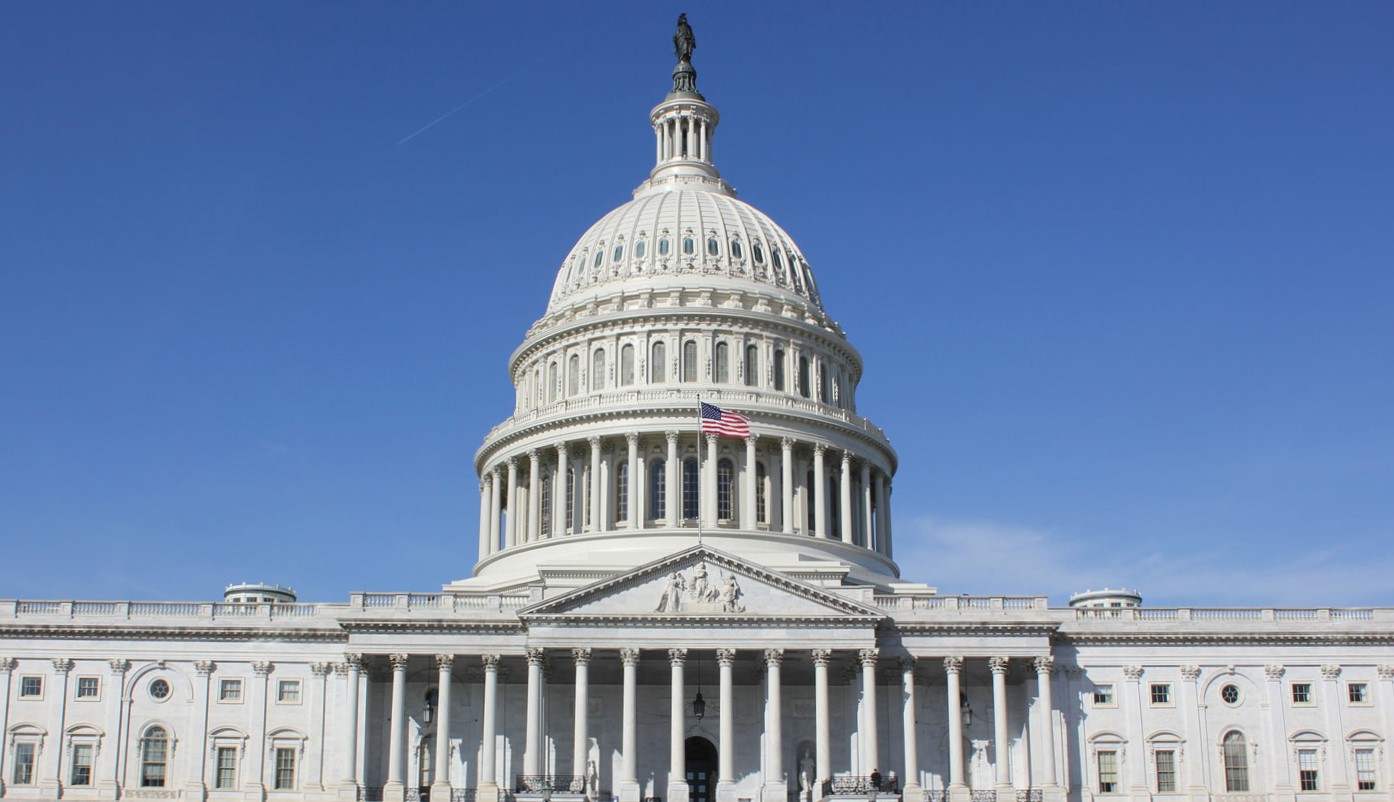
The Ideal: How Government Should Function
One way to think of the government is as a nonprofit organization managed by the people to build us a utopia (or “to form a more perfect Union” as described in the Preamble of the Constitution[1][2][3]). To do that, the government is expected to solve societal problems; where the problems it's expected to solve are ones it can solve better than any individual, nonprofit group, or private industry. This is done either by implementing solutions itself or working with other non-government entities to achieve those ends.

The Reality: Why Government Is Not Functioning As It Should
Our system of government in the United States is a representative democracy. Theoretically the people elect representatives to various positions in government because they are competent and can work together to solve societal problems. At least that’s the ideal. In an era of partisan politics we instead have a government that has become incredibly dysfunctional in certain areas and struggles at problem solving. So how did we get here?
The dysfunction can primarily be traced back to Congress. As the legislative body of government, problem solving begins with them. Congress is responsible for determining which problems to work on, how to solve those problems, how to codify those solutions into laws, and they provide funding to executive agencies to enforce those laws. So why aren’t the members of Congress doing their jobs?
Well, what happens when an average person doesn’t do their job well? Typically we have to answer to our boss. A good boss will either (1) work with us to help us learn how to become good at our jobs or (2) fire us if we are grossly incompetent. So if Congress is so dysfunctional, who are the bosses of its members? We are. Power ultimately comes from “We the People”. So, why aren’t we good bosses?
This is often assumed to be a rhetorical question, because we have enough on our plates without needing to be blamed for societies’ dysfunction, and so the discussion ends. But if we actually think carefully about answering this question, we can uncover the root of the problems in our democracy and then develop the tools needed to overcome them.

The Disconnect: Why are we as constituents not good bosses to our representatives?
-
Publicly, politics has become more about optics than problem solving.
From the perspective of politicians, one of their primary objectives is to get re-elected. The key to getting re-elected is marketing. So it is unsurprising politicians so frequently use any attention given to them (such as in Congressional confirmation hearings or tv interviews), as a way to market themselves and their party positively while bashing their competitors. And marketing is also why a major component of politics has become about viral sound bites and applause lines instead of deep productive conversations seeking to build consensus. Just because this behavior is unsurprising, doesn’t mean it’s acceptable. We need a way to refocus politics on problem solving.
-
It’s really difficult to be well informed on politics.
How can we be good bosses if it’s so hard to know what’s going on? If we don’t understand the issues, how can we know whether our members of Congress are working on the right things and doing their jobs correctly? While being informed will obviously require us to put some time in, with all of the misinformation out there it is unbearably time consuming to figure out which sources are trustworthy for any given issue. Even amongst trustworthy sources, decentralization of information makes getting informed quickly very difficult. For example, there are multiple 24 hour news networks to get informed by but it is unrealistic for anyone to watch 24 hours of news. Panel shows further muddy the waters because the panelists with their cherry picked facts never end up agreeing on anything. And so there is an unmet need for a comprehensive and concise source of information with strict quality control to ensure factual accuracy, worthy of devoting our limited time to.
-
We have limited opportunity for interaction with our members of Congress.
Even if we were well informed on politics, would that make a difference if we barely interact with our representatives? Imagine if our bosses only interacted with us every few years in the form of them deciding whether we got to keep our job or not. That’s it, no other information. Not what they thought we did well. Not where they saw room for improvement. Just a yes or no.
For most of us, that is the extent of our interaction with our representatives, in the form of voting every few years. Most of us don’t participate in political polls, we don’t have lobbyists advocating for us, our attendance/participation in town hall meetings is limited, and we don’t regularly write letters or call the offices of our members of Congress. And frankly, if we were all to start doing those things it wouldn’t necessarily make things better. For example, it would make it harder for the members of Congress to do their jobs if their offices were constantly flooded with letters and phone calls. And town hall meetings would last forever if every one of us were to speak at the microphone. What we need is a highly organized, efficient, and constructive way to interact with our members of Congress.
-
Being a good boss to our representatives is low on our priority list.
If we think about our own bosses, it is worth noting that being our boss is their full time job. It’s what they’re paid to do and what their work performance is judged upon. But it is unrealistic for the average American to have their own full time job(s), families, etc., and on top of that have a second full time career of being the boss to their member of Congress. A job which when done well only has returns in the form of indirect benefits like a better functioning society, but no up-front tangible benefits. This ensures it will be a low priority compared to the other parts of our lives that demand our immediate attention. We need involvement in politics to be much easier so it will be worth the effort, and can naturally move up on our personal to-do lists.
-
We’re supposed to run the country together but we’re so divided.
From the perspective of the two major parties, the country being so divided can be viewed as a good thing in that Republicans and Democrats are achieving brand loyalty analogous to Coke vs Pepsi. Unfortunately for the country, this brand rivalry is degrading our democracy; preventing us from (1) taking a principled approach to determining what common standards representatives should have to meet in order to hold office and (2) thinking critically about problem solving instead of blindly taking the side of whichever party we might identify with. A democracy is only as good as its people, so we need tools to empower the reasonable of us to think critically in the face of the partisan "divide and conquer" strategy.

Why CLARK Was Created
As previously outlined, there are major issues for “We the People” to overcome in order to be better bosses to our members of Congress. CLARK is a non-partisan web tool created to systematically address these problems. Think of it like a management software, intended to serve as a centralized control panel for each of us to do our part in running the country, making it easier for us to be well informed, focus on problem solving, and work together alongside our representatives, in the common goal of optimizing the functioning of the government and society.
CLARK is non-partisan, a term that demands elaboration. Non-partisan is different than bi-partisan. While bi-partisan looks at the arguments of the two parties and tries to find middle ground, non-partisan doesn’t care about the parties and just tries to understand the problem from every relevant angle and independently reason out what is valid and what is not. Put another way, bi-partisanship is about compromise and non-partisanship is about building consensus.
Being non-partisan doesn’t mean that the content published on CLARK will never agree with one or more of the parties’ platforms or the statements of individual politicians. What it does mean is that CLARK would publish the content because it is valid, even if the content were to suddenly agree with the other party or no party at all. This is how CLARK ensures the content is unbiased and comprehensive. All that matters to CLARK is identifying and publishing the content necessary to optimize democracy.
-
Publicly, politics has become more about optics than problem solving.
CLARK is structured specifically to focus on organizing information around the problem solving process. This process is split into the bottom-up page (a “clean sheet” approach stripped of partisanship and political personalities, where we figure out what the government should be working on), and the top-down page (monitoring what the government actually does about the problem and whether those actions have been effective).
More specifically the bottom-up approach entails:
- Defining problems.
- Gathering relevant information and presenting it in a way that is simultaneously factual, well-cited, comprehensive, and concise.
- Sorting problems into those worthy of addressing by the government and those that are not.
- Prioritizing the top problems and setting deadlines to solve them.
- Brainstorming potential solutions and analyzing their pros/cons to more easily identify an optimal solution (there may not be a perfect solution, but there should be at least one optimal one)
When problems “graduate” from bottom-up, they move to the top-down page which:
- Tracks legislative/executive actions directed at the problem
- Tracks the status of the problem to determine whether it is actually getting solved
- Continues to monitor the problem’s status if government action seems to be effective. Otherwise a new problem, defined by the aspects that remain unsolved or were originally unaccounted for, needs to be generated on the “bottom-up” page and the process restarts.
To further ensure that CLARK is focused on problem solving and not optics, all content on the site is published anonymously, ensuring that it is judged based on its quality and not who wrote it. And for the contributors, anonymity ensures that contributors can post good content for the sake of good content instead of being distracted by getting credit/recognition.
-
It’s really difficult to be well informed on politics.
CLARK sorts problems into priority lists, allowing users to focus on the most pressing problems instead of being overwhelmed or diluting attention across too many issues at once. Also, CLARK makes the background information on any problem more easily digestible by boiling it down to a simple Question and Answer format. For the sake of comprehensiveness, it also archives misinformation. This makes it easy for users to internally correct misinformation they may have been exposed to, and make political conversations more productive where disagreements may be rooted in misinformation. Finally, CLARK allows users to react to the information, making it easy to keep track of what has already been read while getting informed on a particular issue.
-
We have limited opportunity for interaction with our members of Congress.
A major feature distinguishing CLARK from other informational websites is its interactivity. As CLARK continues to evolve and new functionality is added, this big data will be made into useful visualizations; making it easy for our representatives and future candidates running for office to understand how to best serve the public.
-
Being a good boss to our representatives is low on our priority list.
While getting informed/involved in politics will never be totally effort-free while still being democratic, the goal of CLARK is to make it easy/quick/interesting/worthwhile enough that contributing to the functioning of our democracy can become a natural part of our everyday routines. For example, people already spend so much time on social media reading and sharing political information. Instead of feeling guilty about it, users could reallocate some of that time to CLARK where the information has stricter quality control, is well researched, and useful to solving problems. Additionally this would allow social media sites to refocus on their original purpose, being a digital platform to share personal news instead of political misinformation.
-
We’re supposed to run the country together but we’re so divided.
First of all, America has always been divided. But the key to American advancement has historically been about bringing together enough reasonable people. Even from the nation’s founding, about 20% of America was still loyal to the British empire, and a majority of the people were undecided or “fence sitters”. It wasn’t until writers like Thomas Paine, with his work “Common Sense”, that enough of the public became informed of the reasons for independence and rallied to the cause.
Similarly, CLARK isn't expected to end the divisions of politics. If anything, it redefines them... to no longer be between the right and the left, but instead to be between the unreasonable and the reasonable.
The unreasonable are by definition those who cannot be reasoned with, and CLARK is not their intended audience. This isn’t a site for trolls, who don’t recognize that trolling prevents the solving of problems that are affecting real people. This site isn’t for the politically opportunistic, who will say whatever serves their agenda, whether they be lies or intentionally cherry picked information. It’s not for the close minded, who refuse to recognize valid counter-points. It’s not for those who choose unfounded conspiracy theories over reality, nor for people who make claims without fact checking them first. It is not for the selfish, where their “not my problem” leads to inaction, and the problem cannot be solved without the contribution of their political power. And it’s not for the apathetic who are willing to put the burden of government on “someone else who cares more” or “someone smarter”.
This is a site for those who feel a sense of responsibility to do their part to optimize democracy, because a well functioning society won’t magically appear, it must be built. This is a site for those who will commit themselves to thinking things through and analyzing the merits and flaws of other perspectives. For those who will commit to getting things done. For those who will commit to factual information and evolving their views in light of it. For those who seek to avoid hypocrisy and double standards. For those who understand that we all have our flaws and biases but are determined to overcome them. This a site for those who share a vision to build an America that is adaptable, humble, strong, fair, rational, honorable, compassionate, optimistic, and pragmatic.
Future Plans
- Hire a small team of dedicated staff
- Hire researchers- It’s really time consuming to research issues so this site would benefit from having a small team of paid researchers
- Maybe allow users to post questions and researchers answer them in Bottom Up
- Hire programmers- add additional software functionality
- Registered voter generated data
- Give registered voters specialized accounts to make the publicly available data on CLARK more meaningful
- Data visualizations in interactive maps to make it easy to see how issues are polling in at the district level, allowing users to focus on their district instead of the whole country
- Publicly available data means free outreach for good representatives, and the information can be used against incompetent representatives by their competitors in future elections
- General users can contribute content- need to figure out quality control
- Click to see all content, default is to view moderated content only
- Financial transparency:
- CLARK will always be nonprofit to ensure profit never comes before quality of content. While server and staff costs will be covered through donations, other revenue options will be considered as long as they do not impact quality. At the moment no advertisements will be published on the site to avoid any clickbait content, but hosting a page for candidates for office to post their profiles and running ads on that page is under consideration.
- Publish all past, present, and expected future costs in an easy to visualize method
- Show donors exactly where their money is going/give them some choice in which future feature their money is going towards. All donations are anonymous so CLARK will avoid any conflicts of interest
- CLARK agreement- users can get access to candidate profiles if they agree to actively ignore political advertising
- Make elections much cheaper/shorter
- Expand talent pool to beyond those good at political fundraising
